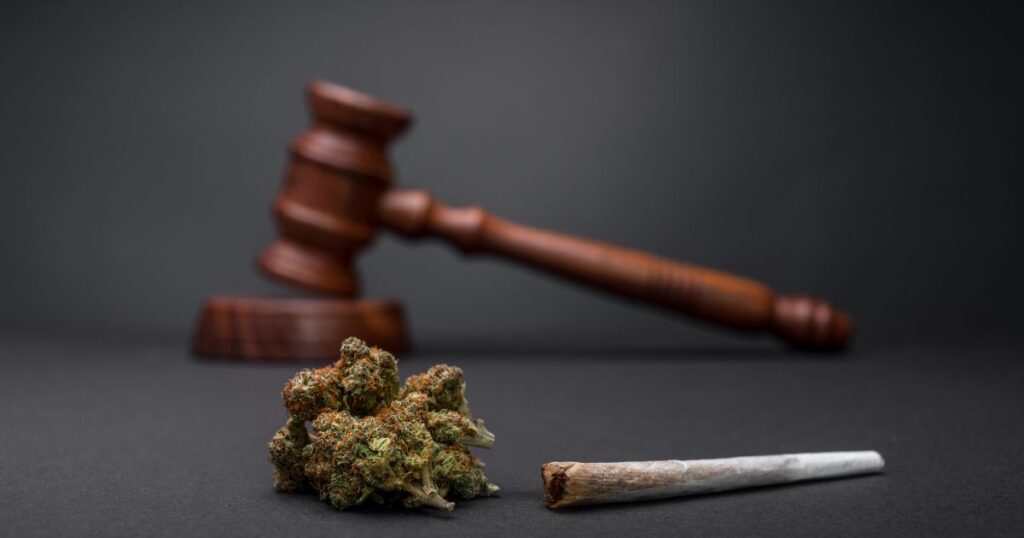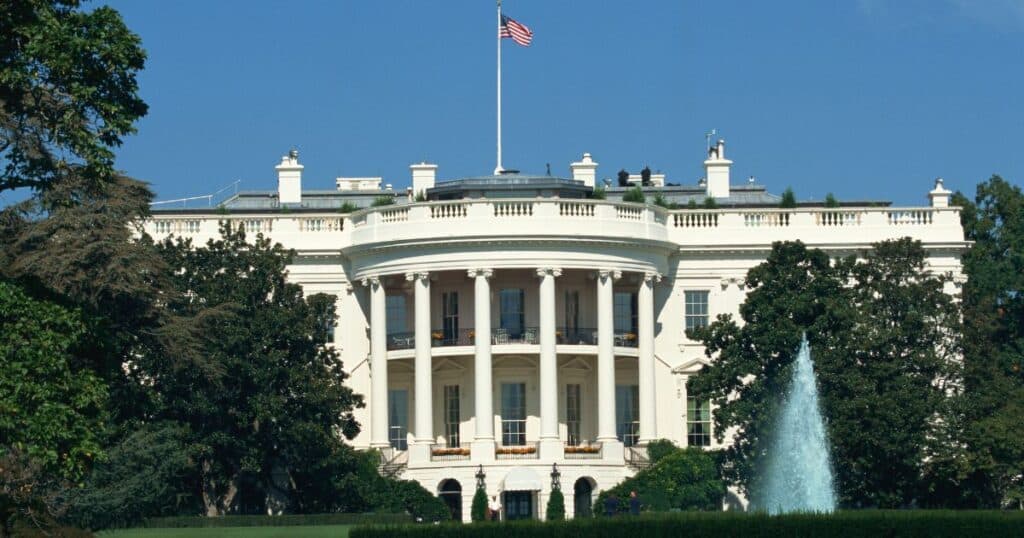Last week at the White House, Vice President Kamala Harris led a roundtable discussion on cannabis policy, showcasing the Biden administration’s approach to the contentious issue. The event elicited a mixture of hope and skepticism from advocates and policymakers, particularly with the question hanging over such initiatives — are they meaningful policy moves or just election-driven posturing?

The roundtable discussion, which took place last Friday, saw a notable assembly of participants, including Gov. Andy Beshear (D-Ky.), individuals who have benefitted from President Joe Biden’s pardon of low-level cannabis offenses, and rapper Fat Joe.
At the heart of the discourse was the impending decision by the Drug Enforcement Administration (DEA) on whether to heed the recommendation of the Department of Health and Human Services (HHS) to reclassify cannabis from a Schedule I to a less restrictive classification, Schedule III.
Such a shift would acknowledge the therapeutic potential of cannabis and alleviate the burdensome restrictions imposed by the Schedule I designation, which deems the substance as having no medical benefit and a high potential for abuse.
Vice President Kamala Harris made assertions that resonated with advocates for cannabis policy reform. Expressing her stance on the current federal laws concerning marijuana, she labeled them as “absurd,” highlighting the disconnect between the federal government’s stringent categorization and the evolving societal and scientific perspectives on cannabis.
She also argued, “Nobody should have to go to jail for smoking weed,”
Harris assured those present that the Drug Enforcement Administration (DEA) is “working as quickly as possible” towards examining and potentially revising cannabis’ classification. She underscored her anticipation and support for the DEA’s outcomes, stating, “I’m sure DEA is working as quickly as possible and will continue to do so, and we look forward to the product of their work” via Politico.
While the HHS recommendation offered a glimmer of hope, the absence of concrete steps has left many questioning the administration’s commitment. The delay in action by the DEA after HHS’s endorsement highlights the bureaucratic hurdles that reform efforts face. This inertia is perceived as a stark contrast to the administration’s promises on the previous campaign trail and serves as a point of contention for advocates eagerly awaiting change.
The Lucrative Political Landscape of Cannabis Reform
The timing of the discussion underscored the political strategy of the Biden administration, with cannabis reform poised as a pivot point in the lead-up to the presidential election. A notable facet of the event was the intersection of cannabis policy with broader criminal justice reform, echoing Harris’s impassioned stance that ‘nobody should go to jail for smoking weed.’ This rhetoric not only aligns with the progressive wing of the Democratic Party but also addresses a central facet of the cannabis debate — the disproportionate impact of criminalization on minority communities.
The intersection of cannabis reform with political posturing is undeniable. The White House event, coupled with President Biden’s State of the Union address highlighting the absurdity of marijuana’s Schedule I classification, signals a concerted effort to court favor with both progressive and youth demographics.
A Gallup poll, conducted in 2023, showed that a record high of 70% of Americans support legalizing marijuana. The timing of this poll result, seemingly aligning closely with the election cycle, underscores the growing importance of cannabis reform in American political discourse. Given this backdrop of widespread public support and in order to garner votes, it’s no surprise that issues surrounding marijuana legalization are gaining traction around election time.
However, actions must match words, and the administration is under increasing scrutiny to deliver substantive change rather than symbolic gestures.
The Multi-Dimensional Impact of Cannabis Policy
The implications of cannabis reform resonate across various domains, from healthcare and criminal justice to economic empowerment. Rescheduling cannabis could pave the way for expanded medical research and access, foster a regulated industry, and ameliorate the impacts of the War on Drugs.
It seems like the government is moving towards rescheduling, but that’s really not good enough. The only logical way we think it should go is completely removing cannabis from the CSA. Descheduling over Rescheduling. Cannabis is safer than alcohol and tobacco, many times over, even though those two substances are not on the CSA.
Navigating the ins and outs of cannabis policy needs a deep understanding that goes beyond party lines. Supporters and critics of marijuana reform can be found on both sides of the aisle, blurring political boundaries.
Crafting a Path Forward
The conversation at the White House reflects a moment for cannabis policy in the United States. It is imperative for the Biden administration to move beyond performative steps and translate vocal support into tangible reform. Engagement with stakeholders, including activists, industry leaders, and medical professionals, is crucial in crafting comprehensive and inclusive policies that champion the interests of the many affected by cannabis legislation.
Transparency and accountability from federal agencies tasked with implementing reform will be paramount in earning the trust of the public. The convergence of bipartisan support for cannabis policy, coupled with the surging public mandate for change, presents an opportune moment for decisive action. Policymakers must broker a delicate balance between progressive aspirations and pragmatic considerations, guided by evidence-based approaches that prioritize public health and social equity.

Overall, while the White House discussion on cannabis policy signifies a step forward, it is clear that the marathon for meaningful reform is far from over. The urgency of the cannabis issue, combined with the expectations of a reform-minded electorate, poses a formidable challenge for the administration.
The ultimate litmus test will be the ability of the Biden administration to effect real change and reshape the national dialogue on cannabis, moving it from the periphery of policy discussions to the forefront of substantial reform. Time will tell if the roundtable conversation at the White House was a mere talking point or the herald of a new era in cannabis policy.


















